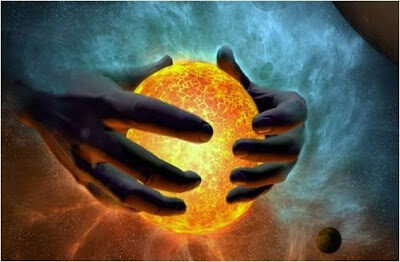“there are no blind forces worth speaking about in nature.”1
-Fred Hoyle
Atheists oft argue that miracles cannot occur because the laws of nature are immutable. By a convenient inference they further argue that since miracles do not occur, the supernatural does not exist.
I mostly wish to brainstorm in a few directions as I do not claim to be as omniscient about the laws of nature-as some of my atheist friends appear to consider themselves:
What are the laws of nature?
The laws of nature are: gravity, electromagnetism, strong nuclear force and weak nuclear force. Yet, the point of my question was not intended to list and discuss them but was to point out that what we term “the laws of nature” is our taxonomy of inferences derived from observations of the natural world. One question to keep in mind is whether we have discovered all of the laws of nature as of yet.
Are they immutable?
Perhaps. They certainly appear to be. Yet, in order to answer in the affirmative we must first presuppose that we know all of the laws. Assuming that we do; we must further assume that we know of every possible action and interaction of these laws in every possible scenario and in every possible combination.
What if they are not immutable?
In such a case, God can bend them.
What if they are immutable?
In such a case, God can “break” them. According to such a scenario God would have created what we understand to be immutable laws for the very purpose of displaying His ability to “break” them and in doing so alert us to the miraculous.
Can God break, or manipulate, the laws of nature?
Some atheists claim that God cannot exist for the very reason that the laws of nature cannot be broker, or bent. However, answering presuppositionally; God created the laws of nature, God invented them, God holds the patent on them, has the template of them, God put them into place and can manipulate them like a guitarist who strung her guitar can strum the strings, or place them in whatever order, or tightness them she pleases.
Lastly, note that as our scientific knowledge increases the more parochial concepts such as the impossibility of God due to presumed immutable laws fades away:
In hindsight, it is an irony that while modernity in its positivistic spirit started out with the notion that the reality perceived by our senses is the only knowable reality there is, we now end up with the idea that the true nature of physical reality is quite different from what we experience through our senses. The legend of the tangibility of matter, or what may be called “the matter myth,” which served as the basis for the certainty of knowledge, was lost.2
Here, within science, were raised the problem of reality (an ontological problem), issues of the limits of human knowledge (an epistemological problem), and the problem of testability (a methodological problem).
Relativity and quantum physics, which serve as the pillars of contemporary science, and more recently chaos theory, are now presenting us with a radically new physical view of the world in which positivistic, deterministic, and materialistic philosophies no longer have secure places. They present us with deeper, greater, and more mysterious aspects of nature.
Scientists now proceed to the area that traditionally belonged to metaphysics, discussing the possibility of the ultimate reality of the universe, the origin and finality of the cosmos, the problem of consciousness, and the like. The natural sciences, as they touch upon the edge of objectivity and empirical testability, raise many questions about the world to which science itself cannot provide definite answers within its limited framework. In these frontiers of science, our metaphors are running out and our common sense often breaks down. We have to wrestle with the limits of our knowledge, logic, and rationality. Here in science the fundamental epistemic problems are naturally raised, as they were in religion and theology in earlier centuries.
We now start to take seriously, especially in fundamental physics and cosmology, the things that are not seen. As recent developments in theoretical physics and cosmology witness, as speculative as they may be, some theories quite beyond what can be directly measured by physical apparatus are possible and are indeed commonplace. It not only raises a possibility for the epistemology of the unseen in general, but also makes its ontological discussion feasible.3

